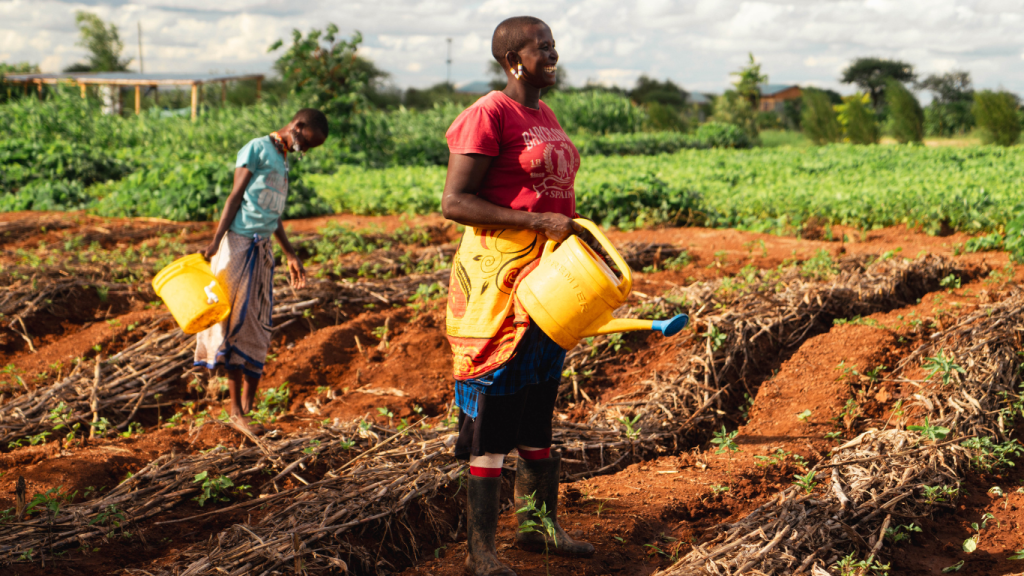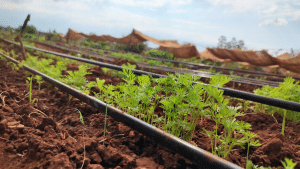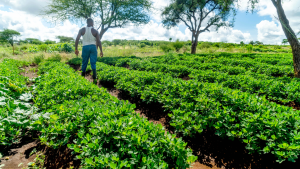
How does an organisation dedicated to making a difference ensure its own people are cared for? How is Ambokili Farm redefining workplace wellness and ensuring employees thrive alongside the communities they serve?
At Ambokili Farm, nestled in a challenging semi-arid region, we’ve revolutionised the concept of employee well-being. Our holistic approach ensures that the welfare of our team is at the forefront, not only uplifting their lives but also setting a benchmark for organisations worldwide, particularly Not For Profit organisations, on fostering a thriving workplace.
Here's how we Invest in Employee Well-Being:
1. Physical Well-being:
Our employees’ physical well-being is paramount. Given the harsh climatic conditions they work under, we restrict work during peak UV exposure hours thus, we minimise health risks associated with intense heat.
Furthermore, we emphasise injury prevention through targeted training and provide comprehensive health insurance. We provide staff with training on proper techniques to avoid injuries. Employees also get access to health insurance and can access healthcare services.
Our commitment to employee well-being extends to dietary health, offering employees access to organic, farm-grown produce, which includes a variety of carbohydrates, vegetables and protein-rich fish, ensuring a balanced diet. This not only improves their physical health but also their satisfaction and productivity at work. Our organic foods do not give them health issues such as tummy aches compared to the other non-organic foods that they’d previously buy.
Moreover, working on an organic farm provides ample opportunity for physical activity, which is beneficial for health.
2. Mental Well-being:
The serene farm environment at the Farm which is located at the foot of Mt. Kilimanjaro and next to Amboseli National Park provides amazing views of the mountains as well as wildlife that stroll into the Farm- naturally alleviating stress.
Whilst the connection to nature and the outdoors inherent in farm work greatly reduces stress and improves mental health, Ambokili Farm actively cares for employees’ mental health through educating them on the need to take care of their mental health and allowing them to take regular breaks to recover physically and mentally. We also have a supportive culture at the farm where employees feel valued and understood.
The proactive mental health initiatives at Ambokili Farm recognise the critical link between mental well-being and overall productivity.
3. Professional Development:
Continuous learning and development can be deeply fulfilling. We believe in nurturing our employees’ potential through continuous learning opportunities. Tailored workshops and training sessions allow for personal and professional development, aligning with individual roles and interests. This investment in our team not only enhances their skills but also equips them to progress within the organisation and beyond. Such empowerment strategies transform our workforce into a highly motivated and skilled one.
4. Positive Environmental Impact:
All our farm employees are part of the Kimana community. Our employees take pride in their work, knowing it positively impacts their community’s environment. Knowing that our work contributes positively and significantly to the environment where our employees live has been a significant morale booster. Regular updates on the impact of their work, such as biodiversity improvements, soil health enhancement, and positive feedback from the community, helps employees see the tangible outcomes of their efforts.
Organisations should work on making employees stakeholders in environmental stewardship.
5. Work-Life Balance:
Given the potentially demanding nature of farm work, especially in challenging environments like semi-arid areas, it is crucial to maintain a healthy work-life balance. We implement flexible working arrangements and reasonable working hours, providing time-off for personal matters and family time, and encourage a culture where overtime is the exception rather than the norm.
This approach reduces burnout and increases overall job satisfaction, making it a good model for organisations in similar sectors and fields to adopt.
6. Safe and Inclusive Work Environment:
Safety and inclusivity are non-negotiable at Ambokili Farm. We adhere to stringent safety protocols and promote a culture of diversity and respect, which is essential for fostering a productive and harmonious workplace. This includes proper training, safety equipment, fair labour practices, and a culture that promotes diversity and equality.
Adopting such inclusive practices not only enhances employee welfare but also goes a long way toward building Ambokili Farm into the exemplary organisation we envision it to be.
7. Fare Wages and Remuneration:
We make sure we remunerate our workers well. We pride ourselves on offering competitive wages that surpass the typical standards within the region. For example, our casual labourers and farmers are paid much better than those in big farms in the capital, Nairobi. We follow the county wage laws and pay fair wages unlike other firms which take advantage of communities and individuals living in rural Kenya where “any pay is fair pay”. By adhering to fair wage practices, we enable our team to support their families adequately and contribute to local economic growth.
Employee well-being isn’t just a fad; it’s an investment in your company’s greatest asset: its people. By prioritising employee well-being, you’re fostering a thriving work environment that fuels productivity, loyalty, and creativity.
Remember, happy and healthy employees are more engaged employees. So, take the first step today. Implement an employee well-being model/programme, encourage open communication, and empower your employees to prioritise their health. It’s a win-win for everyone.






